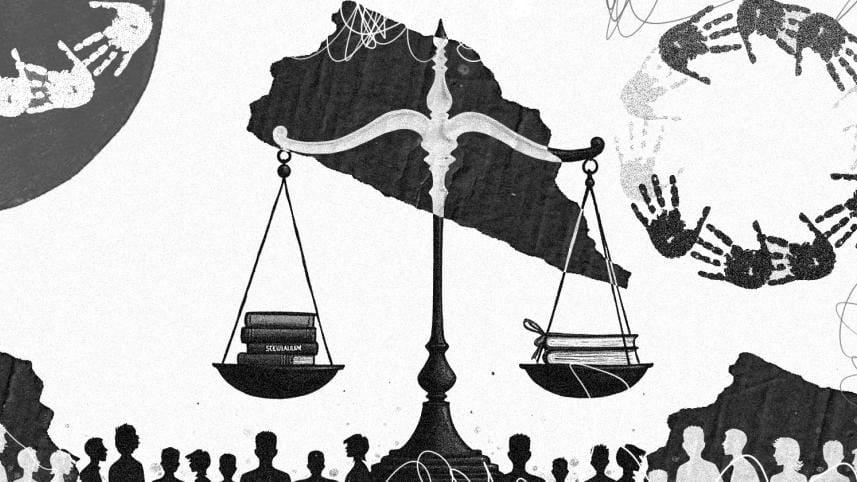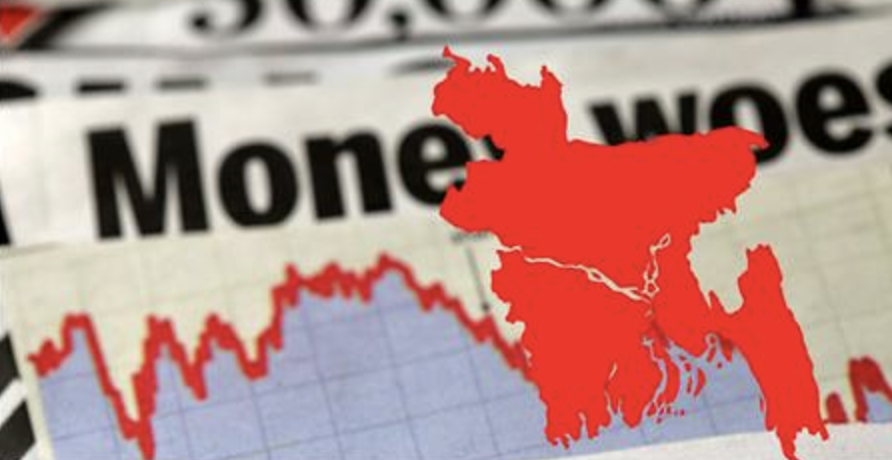In defence of secularism in Bangladesh

The Constitution Reform Commission, in its report submitted to the interim government, has proposed that "secularism" should be replaced with "pluralism" as one of the fundamental principles of the Constitution. Though the word pluralism seems amiable to represent the diversity of voices within society, it is however almost impossible to put into practice effectively due to the lack of any formal framework for implementation. Ironically, the state has to be intrinsically secular to become a quintessential pluralistic society.
Secularism, as a basic tenet of the national identity of Bangladesh, was recognised after the War of Liberation. However, this has increasingly been challenged over the past few years, which raises questions about the country's level of commitment toward religious pluralism, democracy, and social harmony. As the country makes its socio-political journey, the reaffirmation of secularism is very instrumental in guaranteeing inclusive development, peace, and democratic stability.
Bangladesh was born out of the long struggle for linguistic and cultural identity and democratic rights which led to the war in 1971. The drafters of the 1972 constitution envisioned a secular state where citizens, irrespective of their religious affiliation, would enjoy equal rights and freedoms. But subsequent political developments, including constitutional amendments and policy shifts, growing influence of religion-based parties and elements, rejection of secularism by some dominant political parties, and diminishing significance of leftist politics have gradually undermined the commitment to secularism. This also coincided with the inclusion of religious elements in governance and political rhetoric, often at the cost of communal harmony.
Though secularism was one of the main planks of the 1972 constitution, Awami League itself strayed far from its real essence during the last one and a half decades. It used a perverted form of secularism to silence opposition voices. This aberration also served to undermine the founding ideals by which the nation was anchored and further eroded trust within society. The erosion of secular principles, especially under the aegis of the very party that once claimed to be the guardian of these values, highlights the pressing need for a recommitment to true secularism to ensure that all citizens, regardless of their religious beliefs, are treated with fairness and equality.
Secularism, contrary to the belief of some people, is not about the rejection of religion; rather, it is about ensuring the equal treatment of all religious communities and the separation of religion from state affairs. At its core, it guarantees that no religion is privileged over another in the governance of the state. This principle upholds freedom of belief, prevents discrimination, and fosters a sense of national unity that transcends religious divides.
In a country like Bangladesh, with its rich history of interfaith harmony, secularism is the bulwark against extremism and sectarianism. It ensures that all citizens, regardless of their religious affiliations, have equal rights and opportunities. Secularism also supports the idea that religion is a personal matter, and should not interfere with the functioning of the state.
Additionally, in a rapidly globalising world, maintaining a secular and inclusive polity strengthens Bangladesh's diplomatic and economic prospects. Countries that uphold religious neutrality and pluralism are often seen as stable and attractive for investment and international cooperation.
Some would argue that pluralism—a principle that accommodates multiple religious and cultural traditions—could replace secularism in Bangladesh. While pluralism encourages diversity and respect for different faiths, it does not adequately offer the structural neutrality that secularism does. Pluralism, if not undergirded by a secular framework, may still allow religious prejudices to seep into state affairs, thus undermining equal treatment for all citizens.
Moreover, pluralism assumes that there is a balance of power among the different religious groups, which is not always the case in reality. Unless the state is secular to ensure religious neutrality, there will always remain a strong chance of domination by the majority or religiously based political influence. While pluralism is one of the essential social values, it needs to supplement—and not substitute—secularism as a basic principle for governance in Bangladesh.
Moreover, having a fixed state religion is contradictory to both pluralism and secularism. A state that claims to uphold pluralism but privileges, at least on paper, one religion over others inherently creates an unequal structure where minority religious communities do not have the same standing. True pluralism requires a secular foundation where no religion is given preferential treatment in the constitution or governance.
Despite its constitutional commitment to secularism, Bangladesh has faced persistent challenges such as religious extremism, political opportunism, and social intolerance. To reinforce secularism, political leadership must unequivocally support policies that protect religious freedom and prevent discrimination. Educational curricula should promote values of tolerance and coexistence, while civil society must actively engage in advocacy to counter divisive narratives.
Secularism is not merely an ideological stance; it is a necessity for a cohesive and forward-looking Bangladesh. As the country aspires to achieve upper-middle-income and developed status, maintaining an inclusive and secular political framework will be essential for sustainable progress. Defending secularism is, therefore, not just about preserving history but about securing the future of Bangladesh as a prosperous and harmonious country.
Dr Selim Raihan is professor in the Department of Economics at the University of Dhaka and executive director of South Asian Network on Economic Modeling (SANEM). He can be reached at selim.raihan@econdu.ac.bd.
Views expressed in this article are the author's own.
Follow The Daily Star Opinion on Facebook for the latest opinions, commentaries, and analyses by experts and professionals. To contribute your article or letter to The Daily Star Opinion, see our guidelines for submission.




 For all latest news, follow The Daily Star's Google News channel.
For all latest news, follow The Daily Star's Google News channel. 

Comments